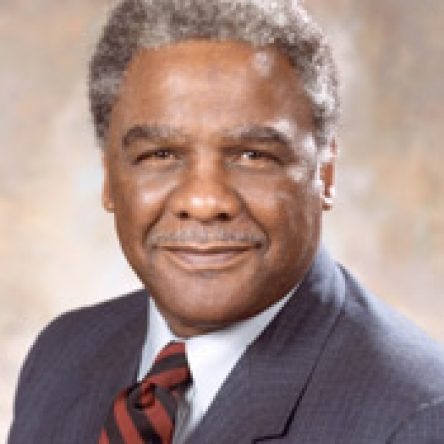Is Brandon Johnson concerned about being known as a Black mayor?
He appears to be going out of his way to help everyone but Black people
During the last four years, it was just about impossible to read a news story or hear a newscast that omitted the fact that Lori Lightfoot was Chicago’s first “openly gay” mayor. It is not an attribute she shied away from, or beat folks over the head about.
Exactly 40 years ago when Harold Washington was elected the city’s 51st mayor and first Black mayor, there was jubilation throughout Chicago. Mayor Washington’s name, this many years later, is spoken with reverence. undoubtedly due racial pride.
In the past four months, we have witnessed Mayor Brandon Johnson ignore pressing issues affecting Black Chicagoans in favor of making certain asylum-seekers are comfortable. Abandoned schools and police station lobbies have never been made available for Black homeless people to shelter.
According to the University of Illinois Chicago's Great Cities Institute, the jobless rate rose from 43.7% to 57.4% between 2019 and 2021 for Black people ages 20 to 24 in Chicago. The unemployment rate increase for Black women aged 20-24 was staggering, rising from 32% in 2019 to 60% in 2021. However, one doesn’t need both hands to count how many programs have been announced by the Johnson Administration aimed solely at reducing Black unemployment.
This week, along with Gov. JB Pritzker, the mayor sent a letter to President Joe Biden asking for the work permit process to be expedited so newly arrived migrants could readily find employment. It also was the ideal opportunity for our rookie mayor to lean on governor to push for more federal funding for Chicago.
After all, we are talking about an interstate issue. In all other instances, moving across state lines falls under federal purview. Johnson declared the city is running out of space to house the asylum seekers unless federal aid is forthcoming. Running out of space means nothing to the Texas governor who is sending busloads of migrants to Chicago several days a week. The Johnson Administration needs to craft a plan immediately to address the soon-to-be arrivals. He should consider casting a wider net to suburbs beyond the limited range he tried initially.
The City of Chicago has already spent more than $20 million to accommodate asylum seekers, and recently allocated $100 million more, according to Crain’s Chicago Business, yet there has been no bump in assistance for Black employment assistance. Crime reduction is a theme of the Johnson Administration. Recidivism is fueled by a lack of jobs, yet we aren’t seeing more Chicago dollars directed toward jobs for the previously incarcerated.
Where is the Black Caucus?
It is mind numbing that the Chicago City Council’s Legislative Black Caucus has for the most part, as well as U.S. Rep. Danny K Davis, and first-term Congressman Jonathan Jackson have been silent on the issue.
Former mayoral candidate-now U.S. Rep. Jesus “Chuy” Garcia is outspoken on the work permit issue, and any other aid he sees the asylum-seekers need. Both Jackson’s and Davis’ districts are predominantly African American, as are the majority of the Black alderperson’s wards. None have spoken out seeking similar or equal treatment for their constituents facing job instability.
Residents of the 20th Ward, which includes Woodlawn, adamantly opposed locating migrants is the former Wadsworth School-to no avail. Less than five miles away at 4900 Du Sable Lake Shore Drive; residents attended a town hall meeting this week. None spoke in favor of the city’s plan to locate approximately 300 asylum-seekers at the former Lake Shore Hotel.
Johnson has plenty of examples and precedence to push for Black equality
While Mayor Washington was a first for Chicago, he was preceded by a bevy of Black mayors across America-all whom carried out their duties with an unabashed focus on helping Black folks. Despite having the examples of Carl Stokes from Cleveland, Richard G. Hatcher from Gary, Coleman Young out of Detroit and Maynard Jackson of Atlanta; Johnson is intent on moving in an opposite direction and not uplifting the plight of Black Chicagoans. This is overtly demonstrated in his actions concerning asylum-seekers.
Mayor Johnson should look to history if he is afraid of being an evangelist for Black advancement. At least four Black mayors, who faced tougher push back than Johnson has to date, are noted for the chutzpah they demonstrated in challenging the status quo and improving the lot of Black people in their respective cities.
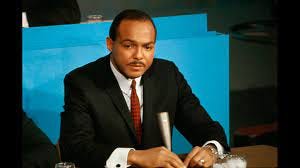
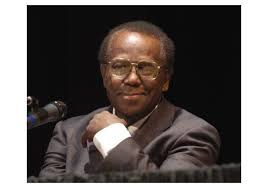
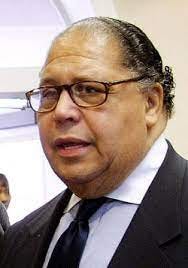
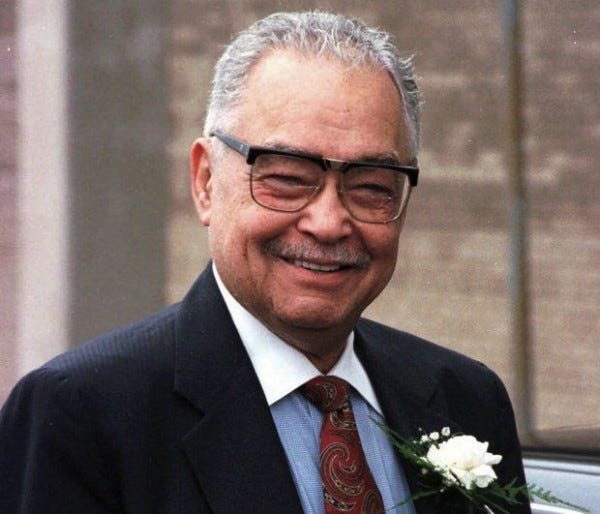
Upper row: Carl Stokes and Richard G. Hatcher Lower row: Mayor Jackson and Coleman Young
Mayor Carl Stokes was a successful proponent of urban revitalization that benefited rich and poor alike in Cleveland. Mayor Hatcher, who served five terms, more than any other Black mayor; also brought the Black Political Convention-an unprecedented event to Gary in 1972. Shortly after being elected to his first term in 1974 Jackson, who had a keen sense of the importance of the business community, declared that 25 percent of the contracts for the $450 million Hartsfield Airport expansion would go to minorities- a key reason why Mayor Jackson is often cited for making more Black millionaires than any other mayors. The airport now bears Jackson’s name.
Of the four mayors shown above, Mayor Young may have been the most controversial.
Although he was befriended by one of the richest man in Detroit, Mayor Young pushed for Black advancement in city hall and on the business front. He wasn’t long in office when he learned one of the highest paid contractors with the city was the bond attorney. He immediately replaced that firm with a fledgling Black-owned one, making it the only Black bond counsel in Michigan. It went on to become one of the largest law firms in the state. When asked by news reporters to respond to some condensing remarks by then-President Ronald Reagan, Young laughingly addressed him as “old prune face.”
It is past time for Mayor Johnson to stop tippy-toeing around the issue of Black improvement and demonstrate he recognizes the need, as well as the reality that it was Black folk who put him in his fifth-floor seat.





